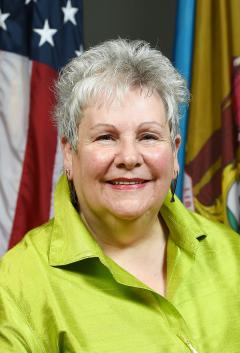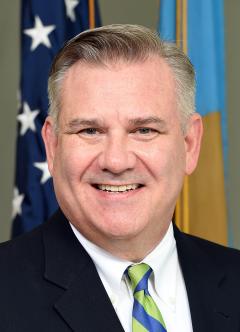Rehoboth Beach candidates answer important questions
For the first time in three years, Rehoboth Beach will have an election. There are four candidates vying for two seats. Suzanne Goode, Mark Saunders and Craig Thier are running as residents. Rachel Macha is running as a nonresident.
No matter who wins, the makeup of the board will now feature two people who have never served as city commissioner. Sitting Commissioners Toni Sharp and Tim Bennett are not running for re-election. There were originally five candidates, but nonresident Joe Cardinale withdrew his name from consideration a few weeks after the filing deadline.
What follows is the Cape Gazette’s candidate questionnaire. Candidates were given up to 100 words to answer each question, and told that they would be edited for length and clarity. Not all questions made it onto the paper’s printed pages, but all the questions and edited answers are available online.
The election will take place from 10 a.m. to 6 p.m., Saturday, Aug. 10, in the Rehoboth Beach Convention Center, 229 Rehoboth Ave.
Any qualified elector may request an absentee ballot by filing a request for an absentee ballot form, which is available online, no later than noon, Friday, Aug. 9. The deadline for the city to mail out ballots is Tuesday, Aug. 6. Ballots must be received by mail or in person before the polls close on the day of the election.
For more information, contact Donna Moore at 302-227-6181, Ext. 108, or go to cityofrehoboth.com.
Candidate information
Suzanne Goode
• Full-time resident since 2017, second-home owner prior to 2017, vacationer since childhood
• Property owner since 2006
• Relevant experience: Research and economic analysis for consulting firms, government agencies and publishing companies. Work included an evaluation of the water and wastewater infrastructure in Cairo, Egypt, for a USAID contractor; a study of the Silk Road rail route from China to Europe for a government contractor; economic analysis of the family law system for an independent publisher; research assistance for the Council of Economic Advisers in the Executive Office of the President; research assistance for the Organization of Economic Cooperation and Development in Paris, France. Lots of PTA volunteer experience thanks to four children in public schools from the 1990s to 2020. Worked on Rehoboth Beach Homeowners’ Association brochure, and effort to enhance pedestrian and bicyclist safety. Served on stormwater task force.
• Education: Bachelor’s degree in economics, magna cum laude, from Harvard University. Bilingual English/French including jobs overseas requiring fluency in French.
Rachel Macha
• Nonresident, non-renter
• Property owner for 25 years
• Relevant experience: Rehoboth Beach Planning Commission, 2019-21; Rehoboth Beach Parks & Shade Tree Commission, 2018-20; Rehoboth Beach Main Street board of directors, 2022 to present; served on Advancement Committee, Salesianum High School, Wilmington; vice president and secretary of Highlands Community Association, Wilmington; Ronald McDonald House of Delaware board of directors for 10 years; various Ronald McDonald House of Delaware committees over 18 years, including President’s Council, Strategic Planning Committee, chaired 10th anniversary gala and marketing chair for annual golf event; Leadership Philadelphia – Core Class; Leadership Jacksonville – Core Class.
• Education: Bachelor of business administration, Wilmington College, master of management, Kellogg School of Business, Northwestern University.
Mark Saunders
• Resident and property owner since 2005
• Relevant experience: Past president, Rehoboth Beach Homeowners’ Association; Rehoboth Beach Board of Adjustment, 2022-24; Rehoboth Beach Parking Advisory Committee and Parking Garage Committee member
• Education: 1974 graduate, Delaware Valley College.
Craig Thier
• Resident, full time
• Property owner for 22 years
• Relevant experience: Founding partner of Blue Line Planning, a company guiding organizations of all sizes to improve financial planning, forecasting and accounting processes, for over 15 years; eight years of finance experience; Rehoboth Boardwalk and Beach Committee since October 2021; volunteering at various community organizations in Delaware including Special Olympics, Southern Delaware Therapeutic Riding and Save Our Lakes Alliance3 water testing; 12 years on Chesterfield, N.J., school board with five years as president
• Education: Marist College.
Questions
City Manager Taylour Tedder has recommended the creation of a strategic plan, which staff can use as a guide moving forward. Is this a good idea? Why or why not?
Suzanne Goode: It is ironic that the city manager's first initiative is to ask for tens of thousands of dollars to hire strategic planning consultants. Several times he has told the media that one of his top priorities is to find cost savings. Mr. Tedder and existing staff should write the plan in consultation with the board and with community input. I prefer a moratorium on all new consultancies unless their work is mandated by state or federal authorities. There should be increased reliance on our experienced and capable staff for many of these tasks rather than giving projects over to outside consultants.
Rachel Macha: While serving on the planning commission, I actively worked on updating the current comprehensive development plan. Despite its importance, the city has failed to implement the strategies and operational tactics of the CDP. It is a crucial step for the city manager to take ownership and lead the development of the strategic plan in collaboration with the mayor, commissioners and city staff. We should not engage a consultant and pay $30,000. The strategic plan should explicitly operationalize and implement the provisions of the CDP. Integrating the annual budgeting process is imperative for ensuring our city’s growth and success.
Mark Saunders: Yes. We have a substantial investment in our new city manager, and a plan of action as proposed by Mr. Tedder is a good first step in securing a sense of where we are presently and where we want to go with our city looking forward.
Craig Thier: During the July 8 city commissioner workshop, I suggested to Mr. Tedder that he should be spending the summer walking around the city speaking with residents, employees, business owners, and tourists rather than taking the opinions of consultants above the people who know Rehoboth best. I also suggested that he review the comprehensive development plan and formulate his own opinions first before soliciting outside input. Then, after meeting with staff and the public, the development of a strategic plan to hold staff and elected officials accountable is advisable.
What are your thoughts and concerns about the proposal to form a regional wastewater system with Lewes Board of Public Works and Sussex County?
Goode: The beach is our greatest economic asset. I am not in favor of continuing discussions concerning Rehoboth taking additional effluent into our outfall unless the county imposes a moratorium on new development in areas to our north. Only then would I resume discussions. There is no concrete benefit for Rehoboth, which has already seen higher wastewater treatment rates. There are a lot of unanswered questions about the potential risk that would be borne by the people of Rehoboth. If our risks cannot be properly mitigated, then I’ll work to make sure no more effluent is dumped off our beach.
Macha: To ensure a thorough project assessment and informed decision-making, we must methodically analyze and propose detailed plans with all stakeholders. Setting clear goals and success criteria is crucial to guide our evaluation process effectively. Key considerations include risk assessment, revenue sharing, financial sustainability, capacity forecasting, growth management, ownership structure, collaborative decision-making, operational responsibilities and impacts on Rehoboth property owners. Transparency in sharing findings with property owners is essential to garner their valuable insights and trust. Their questions and input are vital as we strive to exceed established success criteria for the project to advance confidently.
Saunders: We are currently only beginning to have discussions with Lewes and Sussex County, but I believe an arrangement may be entered which would benefit all parties. Thanks to good planning, we have excess capacity, and Lewes may be willing to compensate us for rental of that capacity. I do believe we must retain complete ownership and control of the quality of the effluent released into the ocean. Not only will we benefit financially, we will also help clean up the bay, as well as being a good neighbor and responsible citizens of Sussex County.
Thier: I support hearing the Sussex County/BPW’s detailed proposals, but until I have an opportunity to understand their detailed proposal and assumptions, I really can’t have an opinion. My thought is there might be a revenue or cost-share opportunity but, again, I need to see the details.
Should the planning commission or the city's building official have final say in determining if building plans are in compliance with city laws and regulations? Why or why not?
Goode: The planning commission is made up of volunteers appointed by the mayor. Some of those appointments are high quality; others, frankly, are not. Very few have any directly relatable skills or expertise. The city building department is staffed by professionals who need to have the final say, as they are licensed by appropriate professional accreditation organizations. Too many vital revenue-producing projects are being held up at the planning commission, so it is essential that the building inspectors have the final say. If developers knew that building officials will not entertain non-code-compliant plans, the entire process would move more quickly.
Macha: The city building official, a commercial building inspector and examiner certified through the International Code Council and qualified to determine compliance with various codes and standards and review of submitted plans, is the appropriate person to have the final say, which maintains consistency in code interpretation. The planning commission needs to establish project timelines with milestones to ensure timely, efficient review. As a former planning commissioner, we reviewed, advised and decided complex or noncompliant projects. The commission’s role is to evaluate and consider the building inspector’s determination and any additional specified considerations – not interpreting the building and zoning codes.
Saunders: This should be a non-issue. The planning commission is only called upon to review large, usually commercial projects. The projects should have been reviewed by building and licensing before being sent to planning. There, the planning commission can review and add conditions if they deem them necessary. If there is a conflict, the problem is usually that the code itself is not clear, and that non-clarity should be remediated. The code needs to be an evolving document, as tech and building materials change over time. We need to catch up, then keep up.
Thier: The city’s code currently outlines the planning commission’s role in site-plan review and approvals. The city’s building officials routinely approve permits and enforce compliance on building plans outside those specified in the city code for the planning commission. I see no reason to change this process because the code clearly states who has jurisdiction in which circumstances. What I do expect is both parties, particularly city building officials who handle the majority of permits, to be well versed in the city building codes so there are no misunderstandings.
The city increased taxes and fees across the board to balance this year's budget. There are significant infrastructure improvements coming down the road, which will add millions of dollars to future budgets. How would you propose the city find the necessary revenue for those costs?
Goode: First and foremost, we need to take a hard look at how we went from a $19 million budget to a $38 million budget in a short time span. What are we spending precious tax dollars on that we don’t need to do? Are there redundancies among staff and consultants? How are our legal fees being affected by poor planning and misguided decisions? We need to have a top-to-bottom review of where we are, where we should be, and then make the hard decisions required. The city needs to stop treating the taxpayers of Rehoboth as an unlimited ATM.
Macha: The mayor and commissioners must shift their focus away from saying no and prioritize fiscal responsibility by identifying and forecasting sustainable revenue streams. Currently, four long-standing hotel projects, some in litigation, have potential to generate substantial one-time and significant ongoing year-over-year revenue streams upon approval and permit issuance. These developments will rejuvenate and beautify older, neglected areas of the city. Additional revenue avenues should be explored, including enhanced convention center marketing, development of public-private partnerships, strategic sale or reuse of city properties, increased tourism and conference promotion, and reclaiming Deauville Beach.
Saunders: First, with over $20 million in reserves in the general fund, and another almost $20 million in reserves in water/sewer funds, the city is currently very solid financially. The real issue is how do we take a more holistic view of finances going forward so that future expenditures are covered while future revenue sources are solidified. I think we should be planning out at least three to five years, and always looking to ensure that revenue sources, including parking fees, business fees and homeowner taxes, are fairly and equally distributed among the different constituencies.
Thier: In my vision for the city, I outline enhancements to the budgeting, forecasting and planning processes. These enhanced processes will provide visibility into future deficits and surpluses, allowing the city to develop plans to address these months, if not years, in advance. This must include serious discussions on the need and scope of capital projects, proposed operating expenditures and surpluses. Given the recent increases to taxes and fees across the board, as well as a FY 2024 surplus of over $1 million, it is very difficult to envision any increase in taxes and fees for FY 2026.
City staff has recommended the creation of a fund balance and net position policy. What are your thoughts on the creation of this policy and the proposed details of how it would operate?
Goode: Responsible budgeting requires an appropriate level of reserves, which is why it’s so frustrating to watch the irresponsible and wasteful spending that has been going on for a number of years. I absolutely believe we need to have a solid amount for the disaster fund, but we also need better controls on day-to-day spending to focus on genuine needs versus wasteful wants. That's why I want to give taxpayers a say by requiring public referendums on three categories of spending: major construction projects, large consultant contracts, and any significant employee compensation packages – like the new city manager's – above certain thresholds.
Macha: Establishment of a fund balance and net position policy is a positive step toward better financial management and planning. It puts in place a strict mechanism to curtail spending unless available cash can pay for current expenses. It preserves a safety net for unanticipated events, such as catastrophic weather, economic dislocation adversely affecting the city, or other unanticipated expenses. At any given year end, any amount in excess of the required minimum fund balance will be rolled over into the next budget cycle, mitigating the need for additional tax increases.
Saunders: I was surprised to hear that we were not already doing this in some fashion. It is just sensible to always know where you stand and if you are on track to a balanced budget maintaining reserves. Large expenditures should always be considered after making sure the basic rainy-day fund is intact and healthy. Capitalization and amortization of large city projects should be considered by the board of commissioners only after public input and consideration.
Thier: I agree that a net position policy needs to be created to essentially cap the surplus, requiring the city to either reduce taxes and fees or to issue refunds when the cap is exceeded. I believe the process of developing the policy, and possibly the policy itself, should assess what $4 million in disaster relief actually buys and how to create reserve for capital projects spanning multiple years.
Regarding beach replenishment, it appears the state is working on a plan that would see local municipalities contributing to the costs. How much should the city be required to contribute and where would this revenue come from?
Goode: Zero. The state needs to manage the replenishment of the beaches as part of its core functions. State government is the partner best equipped to handle those costs and negotiate with the federal government based on the appropriations available for projects all up and down the East Coast. This inherently requires coordination among multiple jurisdictions to achieve economies of scale. Delaware cannot shirk its responsibility by trying to push these costs onto small towns with limited tax bases when the entire state benefits from tourism dollars. Beach replenishment should remain a state responsibility with federal government assistance via the Army Corps of Engineers.
Macha: The federal government covers 65% of beach replenishment costs, with Delaware funding the rest. Over the past 20 years, these projects have totaled about $210 million, with $68.1 million funded by the state. Rehoboth benefits from beach tourism; however, we do not contribute to these costs. If contributions become necessary, the city’s share should be based upon statistical data and capped at not more than 10%. This protects Rehoboth’s most valuable asset and preserves the beautiful coastal town that residents, businesses and visitors treasure. We must reclaim Deauville Beach through responsible negotiations to ensure the quality of our beaches.
Saunders: This is a complicated issue. Replenishment can cost millions of dollars. Our beach is enjoyed by residents and tourists alike, and is always subject to the whims of Mother Nature. If the state insists on charging fees to municipalities, we may have no choice but to pass that expense on to those who use the beach, in the form of beach passes or some other beach-use fee. The current system works well, and the state should be persuaded, with the help of our local state officials, to leave well enough alone.
Thier: The city should be required to contribute $0. The state and Sussex County derive significant financial benefits from our beaches, and we should be working collectively with our county and state representatives on a long-term revenue solution to ensure continued replenishment.
Are there any other issues you're concerned about? What are they?
Goode: I’m very concerned that Rehoboth faces a number of challenges, including increased crime and looming infrastructure costs. To move responsibly toward a brighter future, we need to get revenue-enhancing projects built. We need to be supportive of business owners before they all leave for Route 1. We need to keep our taxes and fees low to stay competitive. And we need to be more transparent and accountable. Without new perspectives among our leaders, the Rehoboth we know and love could easily decline in terms of quality of life.
Macha: Our future hinges on common-sense decisions made by strategically minded commissioners, rigorous processes, fiscal responsibility and accurate long-term financial planning. We must curb excessive spending on consultants, studies and litigation, focusing resources on revenue-generating projects. Communication, accountability and transparency are essential to rebuild trust in our city leadership. Advocating for downtown business is vital. Forums for property owners and businesses are essential to contribute ideas, fostering collaboration and inclusive governance. As a long-term property owner with extensive business experience and five years working on Rehoboth commissions, I know how to rebuild trust and will work tirelessly for Rehoboth citizens.
Saunders: Deauville Beach should be repatriated back where it belongs, as part of Rehoboth Beach. With all the new construction within 20 miles of us, the question of too many day visitors is a very real one. When our parking is at capacity, that signals to me that our beach and restaurants are full, and the quality of the entire Rehoboth experience starts to decline. I think we need to work with businesses to shift more events to the off-season, while having discussions on public transportation and perhaps a maximum amount of cars permitted to rental houses in residential neighborhoods.
Thier: Yes. I look forward to discussing these at the Rehoboth Beach Homeowners’ Association Candidates Forum at 10 a.m., Saturday, July 20, at the Rehoboth Beach Volunteer Fire Company. I encourage all residents to attend so they can meet their candidates and learn who and what they are voting for.
Chris Flood has been working for the Cape Gazette since early 2014. He currently covers Rehoboth Beach and Henlopen Acres, but has also covered Dewey Beach and the state government. He covers environmental stories, business stories and random stories on subjects he finds interesting, and he also writes a column called Choppin’ Wood that runs every other week. He’s a graduate of the University of Maine and the Landing School of Boat Building & Design.


























































